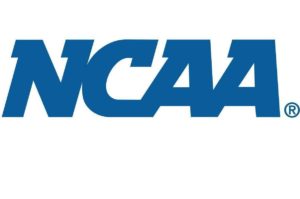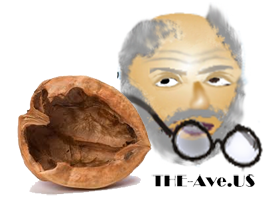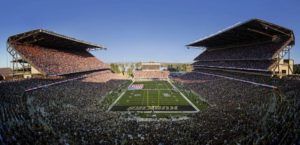The NCAA must do more to help prepare current and former student athletes for life after sports. A start would be allowing kids to actually major in subjects they are interested in.
In 2002, I received an athletic scholarship, for basketball, from the University of Washington. I attended the school for only two years, initially, before transferring to Portland State University after my sophomore year, for disciplinary reasons. Although it took a long time, I decided to get back into school once I learned that I could get my scholarship reinstated—though I, of course, couldn’t play basketball anymore. I also learned that I could choose between PSU and the UW. Without any hesitation, I chose UW.
As of this winter, I am finished with my undergraduate degree. Although I am very grateful that UW

Some who read here remember the story of Anthony Washington. Ant went from being hyped as the great Freshman hope of the Huskies’ basketball team to breaking an ankle . He then became a transient basketball player in foreign countries, finally a line cook at the UW.
All without being able to complete his UW degree.
Now 33, my friend got back into the UW with help from his mother and me, By then Ant had developed many new interests and wanted to learn more about creative wring, anthropology, literature, anthropology. Some of us met with him and encouraged his reading.
Many majors would have fit Ant’s now more mature interests.
The story on THE Ave tells how instead this bright man was shepherded into the American Ethnics Study program.
As Ant writes, his story is not unique. Even excellent Athletic Directors and Coaches need to recruit the best athletes. The NCAA and our our own university have rules that demand that these students get some chance to learn. I believe our coaches want to do better, but the system is horrid.
As a non Black member of the faculty, I have the sad vision of a majority of our “scholar athletes” playing for an audience that is almost all white. The images this produces are more like those of a plantation or the Roman coliseum than an academic institution devoted to diversity.
We ought to do better!
honored my scholarship and allowed me to finish school, my experience was not as fulfilling as I’d anticipated. I attribute this mainly to the fact that I was not allowed to change my major to something that aligned more with the interests I’d developed, in the 14 years since I’d started college. Instead, I was forced to decide between American Ethnic Studies and Sociology, because those were the two majors that required the least amount of time for me to receive a degree. It became evident that the UW and the athletic department had no vested interest in putting me in a position to succeed in the field that I wanted to go in. They were simply satisfying their end of an agreement.
Agreements like these continually allow NCAA institutions all over the country to exploit student athletes. While many within Black communities throughout the nation see athletic scholarships as the solution for kids dealing with socio-economic issues, the free education that is promised to young, male, student athletes, is not in their control.
This problem is not unique to basketball players. A large number of Black football players also do not get to choose their majors. While back on campus, I was able to interact with some current UW football players that were also majoring in American Ethnic Studies. I enjoyed the nostalgia brought on by the young men joking and enjoying life, but I could not help but notice that these kids weren’t being encouraged to take school seriously.
Yes, the athletic department does an amazing job making sure that student athletes go to class, by closely monitoring their daily attendance records. Kids make sure that they are in class because they do not want to be penalized for being absent, but the kids show very little interest in the subject material. It is hard to blame these kids for not showing any interest in school, as they are clearly in school to play football.
There were some Black football players that let me know that they were not allowed to take classes in fields that they were interested in. The majority of the kids I spoke to did not realize they had a choice as to what they wanted to major in, and just accepted being placed in American Ethnic Studies, which is not a bad major if one were trying to become a community advocate, a lawyer, or teacher. But based on the career aspirations that these young men told me they had, different majors—namely ones centered around business—would be more beneficial for them.
Some of the young men, upperclassmen nearly finished with school, felt cheated and rightfully so. They were failed by the predominantly white institutions they chose to attend, who recruit these young men solely for their athletic talents, with little regard for the kids academically speaking. These young men were also failed by the predominantly Black communities they come from, who to no fault of their own are plagued with poor public school systems that fail to prepare kids for higher education.
Two young men that I had the good fortune of talking to really stood out to me. One day while studying for our AES comparative literature final they shared their Brand they started during their time at UW. After watching the video they showed me, I was excited and I let them know that they should be taking marketing/business classes in order to get a foundation in that industry.
Clearly business minded, clearly capable, it became evident that even if kids show potential to excel in another subject other than AES, the chances of those kids actually being able to take classes in another field were slim to none. Below is a video that features three talented University of Washington Husky football players Darrell Daniels, Brandon Beaver and Kevin King, talking about their brand, “Always Original,” which encourages creativity and embraces originality